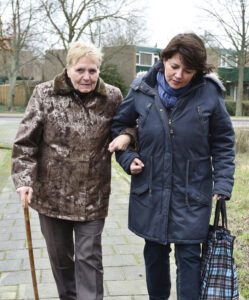
There was a sad story about a woman named Geri Taylor in the most recent issue of Bloomberg Businessweek. She ran a large long-term care facility into her mid-60’s at which point she started to get forgetful. One time, she was in the middle of running a staff meeting and lost her train of thought. When she couldn’t get it back, one of her deputies had to take over. Another time, she got off at the wrong Manhattan subway stop and had no idea why she was there or where she was going. She kept putting off seeing a neurologist for years until one day she walked into the bathroom and couldn’t recognizer her own face in the mirror. She was finally diagnosed with mild cognitive impairment, likely due to Alzheimer’s disease, in 2012. New hope arrived in 2015 when she enrolled in a clinical trial. She had an unusual buildup of a protein in the brain called amyloid plaque, which most researchers believe is related to Alzheimer’s disease. The drug turned out to be Aduhelm, made by Biogen Inc. However, her hopes were quickly dashed when, despite being given FDA approval, Medicare refused to pay for the drug and it was essentially taken off the market. Now, some researchers are wondering if the whole Amyloid plaque theory should be abandoned and scientists should focus on some other promising areas. But there is a huge disagreement on this topic. Rudolph Tanzi, a neurology professor at Harvard Medical School and Massachusetts General Hospital, said, “If you say amyloid doesn’t matter in this disease, you are just hiding your head in the sand.â€Â He is more optimistic about using anti-amyloid drugs earlier as a preventative measure. Over the next year, results from trials of three more amyloid-lowering drugs—from Eli Lilly, Roche and Eisai, are expected to be published.  If any of the trials succeed, Medicare will be under extreme pressure to pay for the drugs. However, if they all fail, backers of the amyloid hypothesis may have to throw in the towel. Regular readers of my blog know that both my father and my grandmother had this terrible disease when they passed away. There are a great group of people at the Monterey Chapter of the Alzheimer’s Association in Ryan’s Ranch. They also have a 24-hour hotline if you just want to talk at 1-800-272-3900.






